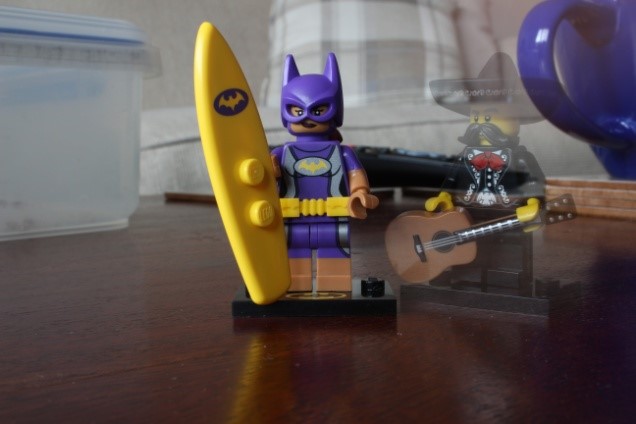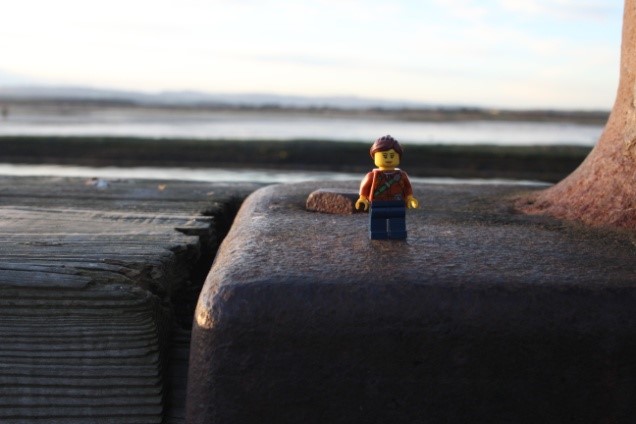An Evening In The Life Of A Digital Photography Student
This course consists of lectures and practical exercises, with the emphasis on the practical side of photography. It is designed for those interested in developing their photography skills either for work, self-employment or personal use.
You will discover how we combine aperture/ISO/shutter speeds to produce your desired results. The course will cover a range of topics including portraiture, painting with light, landscape photography, rule of thirds and image composition. The only thing you require is a DSLR camera.
What made you decide to enrol on this evening class?
Caroline – “I’ve always fancied doing photography and I got a new camera for Christmas so I decided to give it a go.”
Katie – “It’s very convenient for me as I work full time and I can work around the class. It’s a beginner class which is nice and I’ve always been interested in photography. I’ve always wanted to learn how to take nice photos for when I’m out and about or on holiday and to make them more artistic. I knew that it would be useful for working PR jobs and at events with my work.”
What did you enjoy most about this course?
Caroline – “I enjoy learning the different aspects of taking a photograph and doing something different every week.”
Katie – “I got to do a really fun project where 3 shots focused on lighting and 3 focused on composition. This involved mini figures where I made them appear part of the real world. I felt very creative and it allowed me to think outside the box.


Did you have any worries before you started this course and were they resolved?
Caroline – “I didn’t really have any worries as I saw this course as more of a hobby than anything else”
Katie – “I didn’t have many worries as I felt the description of the course was good, maybe just about possibly falling behind.”
What equipment do you need for this course?
Caroline – “You just need a DSLR camera.”
Katie – “You need to have a DSLR camera which luckily I already had. Other lenses and a flash might be beneficial but they’re not necessary. Maybe a note-pad?”
What level of knowledge do you think you need to be able to do this course?
Caroline – “You don’t need any knowledge of photography before staring the course.”
Katie – “I think the best thing about it is that you don’t need any knowledge, just an interest in photography and being keen to improve on your skills.”
Tell me more about the course and what you have learned?
Caroline – “The course covered how to take photographs on manual mode so I had to work out what shutter speed, aperture and ISO to use. We weren’t allowed to use the other settings. I’ve learned how to think about the composition of a photograph using things called lead lines and depth of field.”
Katie – “I’ve learned a number of different topics including lighting, with and without a flash, the ways that light reflects, manipulations of light, composition and how to structure photos, shutter speeds as well as whole lot of theory! There is a project to work towards and you gain an SQA qualification.”
How are you going to use your new skills – Work? Leisure?
Caroline – “Both I hope. As I work in the marketing team we are asked to take photographs at events. I’ve already covered one event for the team I love taking photographs, especially landscapes.”
Katie – “I’ll definitely use my skills for work and leisure. I am always asked to take photos for work and I will now be more confident with this. I’m excited to put my new skills into practice.”
What would you say to someone who is considering enrolling for this course to encourage them to apply? Do you have any advice for them?
Caroline - “I’d say to be prepared for the fact that it isn’t just how to hold a camera, click and take a photo. There is a lot more to it but also to enjoy it. It’s not a huge commitment as its only one evening a week and its pretty fun! .”
Katie – “I’d say definitely don’t hesitate. If you’re interested in photography and want to develop your skills, it’s a great place to start. It’s a different atmosphere and environment- it’s nothing like school, college or university. It’s a great way to meet new people.”
What has been the most challenging aspect of the course?
Caroline – “It was a lot more technical than I thought it was going to be. I found it quite hard to grasp to begin with regard to ISO, aperture and shutter speed.
Katie – “I had a lack of confidence that the photos I took actually met the brief. Understanding the theory was difficult at times. I had to learn to not be afraid to get it wrong the first time and that creative things need more time and practice to succeed at.”
If you could rewind to the beginning of the course, would you do anything different?
Caroline – “Not at the beginning but perhaps have done a bit of research into what digital photography entailed.”
Katie – “I don’t think I’d do anything different, I got what I wanted from the course.”
What next? Another evening class? More photography courses? Or just putting your new skills into practice?
Caroline – “I would like to do another evening class but perhaps next year. I will definitely be putting my skills into practice with work and leisure.”
Katie – “I’d like to study another evening class, possibly the next level of photography, but I’d consider other courses as well. I’d like to develop and build on my photography skills from this course. It’s a nice skill to have.
Are there other courses you would like to see Ayrshire College offering?
Caroline – “I think the college offers a wide selection of courses. Perhaps a wider selection of evening classes would be good.”
Katie – “I think a web authoring course would be course, or maybe a jack of all trades type thing.”
Check out our Evening Classes here